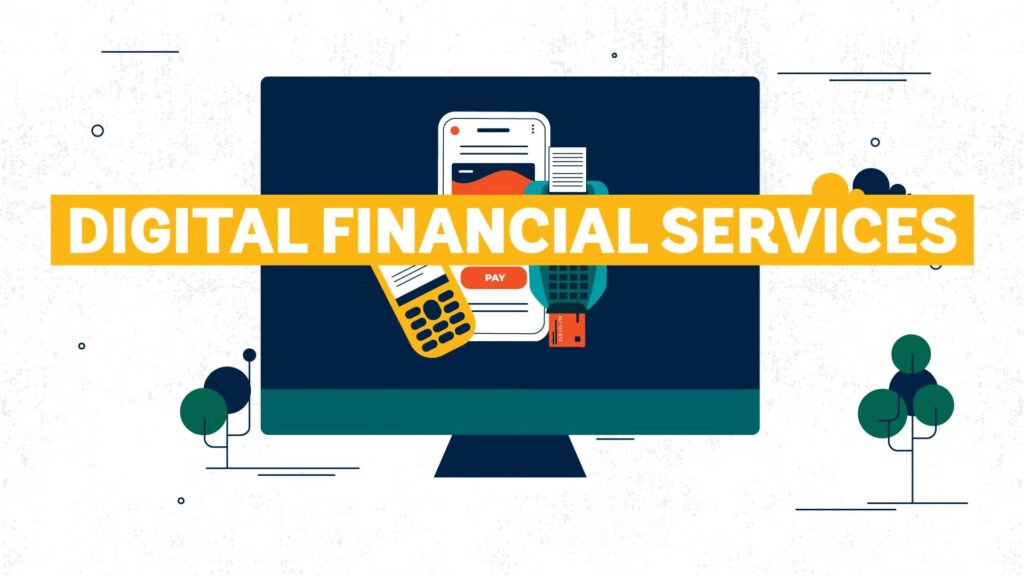In today’s fast-paced world, the intersection of technology and finance, known as fintech, is revolutionizing how we manage money, conduct transactions, and envision the future of banking. From mobile payment apps to blockchain innovations, fintech is reshaping the business and finance landscape in profound ways. Whether you’re a seasoned investor, a budding entrepreneur, or simply curious about the financial technologies driving change, understanding fintech’s impact is essential. Let’s delve into the dynamic world of fintech and explore how it’s transforming the way we handle money.
1. Understanding Fintech: A Comprehensive Overview
What is Fintech?
Fintech, short for financial technology, refers to the integration of technology into offerings by financial services companies to improve their use and delivery to consumers. It encompasses a wide range of applications, including mobile banking, online lending, blockchain, and robo-advisors, all aimed at enhancing financial processes and accessibility.
The Evolution of Fintech
Fintech isn’t a brand-new phenomenon. Its roots can be traced back to the introduction of ATMs and credit cards in the mid-20th century. However, the digital revolution of the 21st century, characterized by the rise of the internet and smartphones, has significantly accelerated fintech’s growth, making financial services more accessible and efficient than ever before.
2. Key Areas of Fintech Innovation
Mobile Payments and Digital Wallets
One of the most visible aspects of fintech is the rise of mobile payments and digital wallets. Services like Apple Pay, Google Wallet, and PayPal allow users to make transactions seamlessly through their smartphones, reducing the need for physical cash or cards.
Peer-to-Peer (P2P) Lending Platforms
Fintech has democratized lending through P2P platforms like LendingClub and Prosper. These platforms connect borrowers directly with individual lenders, often offering more competitive rates and streamlined processes compared to traditional banks.
Robo-Advisors and Automated Investing
Robo-advisors such as Betterment and Wealthfront utilize algorithms to provide personalized investment advice and portfolio management, making investing more accessible to the average person without the need for a human financial advisor.
Blockchain and Cryptocurrencies
Blockchain technology, the backbone of cryptocurrencies like Bitcoin and Ethereum, offers decentralized and secure ways to conduct transactions. Beyond cryptocurrencies, blockchain is being explored for applications in supply chain management, smart contracts, and more.
Insurtech: The Modernization of Insurance
Insurtech companies like Lemonade and Oscar are leveraging technology to simplify and enhance the insurance process, from policy management to claims processing, making insurance more user-friendly and efficient.
3. The Impact of Fintech on Traditional Financial Institutions
Disruption and Adaptation
Fintech has disrupted traditional financial institutions by offering more agile, user-friendly, and cost-effective solutions. In response, banks and other financial entities are adapting by partnering with fintech firms, investing in their own technology, and rethinking their service models to stay competitive.
Enhanced Customer Experience
Fintech innovations prioritize user experience, offering intuitive interfaces, personalized services, and 24/7 accessibility. Traditional banks are adopting these principles to improve customer satisfaction and retention.
Cost Efficiency and Operational Improvements
By automating processes and utilizing data analytics, fintech allows financial institutions to reduce operational costs and enhance efficiency. This shift not only benefits the institutions but also translates to better rates and services for consumers.
4. Fintech’s Role in Financial Inclusion
Bridging the Gap for the Unbanked and Underbanked
Globally, millions of people lack access to traditional banking services. Fintech bridges this gap by providing accessible financial solutions through mobile platforms and digital services, enabling more individuals to participate in the financial system.
Affordable Financial Services
Fintech offers affordable alternatives to traditional banking, with lower fees and more flexible terms. This accessibility is crucial for individuals and small businesses in developing regions, fostering economic growth and stability.
Empowering Small Businesses
Fintech platforms provide small businesses with easier access to loans, payment processing, and financial management tools. This empowerment allows them to scale operations, manage cash flow more effectively, and compete in larger markets.
5. The Regulatory Landscape of Fintech
Navigating Compliance and Legal Challenges
As fintech continues to grow, it faces a complex regulatory landscape. Companies must navigate various laws and regulations related to data privacy, consumer protection, anti-money laundering (AML), and more to operate legally and ethically.
Regulatory Sandboxes and Innovation Hubs
To foster innovation while ensuring compliance, many governments have introduced regulatory sandboxes. These frameworks allow fintech startups to test their products in a controlled environment, balancing innovation with oversight.
The Importance of Collaboration Between Fintech and Regulators
Effective regulation requires collaboration between fintech companies and regulatory bodies. By working together, they can create frameworks that protect consumers without stifling innovation, ensuring sustainable growth for the industry. 
6. Fintech and Cybersecurity: Ensuring Safe Transactions
The Growing Threat of Cyber Attacks
With the rise of digital financial services, the threat of cyber attacks has also increased. Fintech’s companies must prioritize cybersecurity to protect sensitive financial data and maintain customer trust.
Advanced Security Measures
Fintech firms are employing advanced security measures such as encryption, biometric authentication, and blockchain technology to safeguard transactions and data. These technologies enhance security and reduce the risk of breaches.
Building Consumer Trust Through Transparency
Transparency in security practices is essential for building consumer trust. Fintech’s companies must communicate their security measures clearly and ensure that customers understand how their data is protected.
7. The Future of Fintech: Emerging Trends and Predictions
Artificial Intelligence and Machine Learning
AI and machine learning are set to play a pivotal role in fintech’s future, enabling more sophisticated data analysis, personalized financial services, and predictive analytics to anticipate market trends and consumer needs.
Decentralized Finance (DeFi)
DeFi is an emerging sector within fintech that leverages blockchain technology to create decentralized financial systems. DeFi platforms offer services such as lending, borrowing, and trading without intermediaries, potentially transforming traditional financial models.
Open Banking and API Integration
Open banking initiatives promote the sharing of financial data through APIs, fostering greater innovation and collaboration between fintech companies and traditional financial institutions. This integration enhances service offerings and creates a more interconnected financial ecosystem.
Sustainable and Green Fintech
As environmental concerns grow, fintech is also embracing sustainability. Green fintech’s focuses on creating financial products and services that support environmentally friendly practices, such as sustainable investing and carbon footprint tracking.
8. Fintech Startups: Pioneers of Innovation
Notable Fintech Startups to Watch
Startups like Stripe, Square, and Revolut are leading the charge in fintech innovation, offering groundbreaking solutions that simplify payments, enhance financial management, and provide new ways to interact with money.
Success Stories and Lessons Learned
Many fintech startups have achieved remarkable success by identifying gaps in the market and leveraging technology to fill them. These success stories provide valuable lessons on the importance of innovation, customer-centric design, and agile development.
Challenges Faced by Fintech Startups
Despite their potential, fintech startups face challenges such as regulatory hurdles, intense competition, and the need for substantial funding. Overcoming these obstacles requires strategic planning, robust business models, and strong industry partnerships.
9. Fintech Investment and Market Growth
Rising Investment in Fintech
Investment in fintech has skyrocketed in recent years, with venture capital firms and institutional investors recognizing the sector’s immense potential. This influx of capital fuels innovation and supports the growth of new fintech’s ventures.
Market Projections and Growth Indicators
Analysts predict continued growth for the fintech sector, driven by increasing digital adoption, technological advancements, and evolving consumer preferences. Key growth indicators include rising transaction volumes, expanding user bases, and the introduction of new fintech’s products.
Impact of Global Economic Conditions on Fintech
Global economic conditions, such as interest rates, inflation, and economic stability, significantly impact the fintech sector. Fintech’s companies must remain adaptable to navigate economic fluctuations and capitalize on emerging opportunities.
10. Fintech’s Influence on Consumer Behavior
Changing Expectations and Preferences
Consumers today expect seamless, fast, and personalized financial services. Fintech meets these expectations by offering intuitive interfaces, tailored financial advice, and on-demand services that align with modern lifestyles.
The Shift Towards Digital-First Financial Services
With the convenience of digital services, more consumers are shifting away from traditional banking methods. This shift emphasizes the importance of having a strong digital presence and continuously innovating to meet evolving consumer demands.
Building Loyalty Through Enhanced User Experience
Fintech’s companies prioritize user experience, offering features like easy onboarding, responsive customer support, and user-friendly interfaces. These elements are crucial for building customer loyalty and long-term engagement.
11. Case Studies: Fintech Success Stories
Stripe: Revolutionizing Online Payments
Stripe has transformed online payments by providing developers with easy-to-integrate payment solutions. Its innovative approach has made it a preferred choice for businesses of all sizes, driving the growth of e-commerce and digital services.
Robinhood: Democratizing Stock Trading
Robinhood disrupted the traditional brokerage industry by offering commission-free trading and a user-friendly mobile app. This democratization of stock trading has attracted a new generation of investors and reshaped the investment landscape.
Ant Group: Leading the Asian Fintech’s Boom
Ant Group, an affiliate of Alibaba, has become a powerhouse in the Asian fintech’s market with its Alipay platform. By offering a wide range of financial services, Ant Group has significantly impacted digital payments and financial inclusion in the region.
Read More: Dr. V.Narayanan Named New ISRO Chairman
Conclusion
Fintech is undeniably transforming the business and finance landscape, driving innovation, enhancing accessibility, and redefining how we interact with money. From mobile payments and blockchain to AI-driven investment tools, fintech’s influence is pervasive and growing. As technology continues to evolve and consumer expectations shift, fintech’s will remain at the forefront of financial innovation, shaping the future of banking, investing, and financial management. Embracing these changes and understanding their implications is crucial for businesses, investors, and consumers alike as we navigate the exciting future of financial technology.









